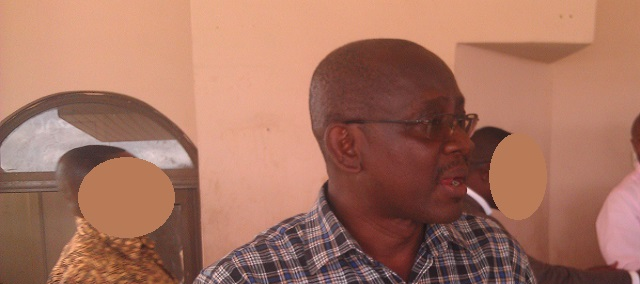
Experts deliberate on Ghana’s food security
The Centre for Scientific and Industrial Research (CSIR) has engaged policy makers and other stakeholders in food security in a brainstorming session to deliberate on ways to sustain Ghana’s security with regard to food.
Advertisement
The discussion has become necessary following the identification of certain challenges and findings of possible remedies associated with food security by the centre through various researches it has conducted.
One of the findings is that Ghana’s food security, although encouraging, with 95 per cent of the population food secure, remains shaky as a result of the country’s dependence on food importation, although it has the capacity to grow more food than it requires.
Ghana Statistical Service (GSS) figures indicate that the country produces only 50 per cent of its rice demand.
The CSIR research also indicates that the country spends approximately US$400 million annually on the importation of the remaining 50 per cent rice demand. It also spends approximately US$100 million to import tomatoes annually.
The meeting brought together stakeholders including representatives from almost all the ministries, departments and agencies, the Presidency, the security agencies, research institutions and the public.
Food security is a situation where all people, at all times, have physical and economic access to sufficient, safe and nutritious food that meets their dietary needs and food preferences for an active and healthy life.
Remarks
In his remarks at the brainstorming session in Accra yesterday, the Director General of the CSIR, Dr Victor Kwame Agyeman, said the percentage of food imported was very worrying and required the prompt attention of stakeholders to ensure the sustainability of the country’s food security.
“That is why we are bringing out the issues today to deliberate on them to inform policies and decisions aimed at sustaining food security,” he said.
Recommendations
Dr Agyeman said the required intervention now was to ensure that total agricultural production met the food security and industrial and export needs of the economy.
That, he said, could be done through the improvement of agricultural technologies and innovations through research.
“The CSIR has developed and continue to develop some of these technologies and innovations which have, over the years, helped to improve local food production, storage and processing, but it is financially challenged to meet the national requirement,” he said.
He, therefore, called for more government investment into agricultural research to sustain food security.
He said more investment into agricultural research would boost the sector and remedy its dwindling contribution to the national Gross Domestic Product (GDP).
He said most of the funding the council received for research was from donor partners who had their own priorities which might not directly be in line with national development priorities.
Post-harvest losses
Dr Agyeman recommended that pragmatic measures be put in place by all stakeholders to ensure that the food produced was properly stored and processed to ensure availability at all times.
He said although the country grew majority of its food needs, about US$400 million worth of the harvested food was lost as a result of the lack of proper storage, processing policies and interventions.
He said post-harvest losses represented nearly 70 per cent of the food imported and, therefore, if that was remedied, it could reduce the national importation burden, boost the economy and help sustain food security.
He attributed post-harvest losses basically to poor storage and processing initiatives, insect and pest attack and poor distribution of food across regions.
Five per cent insecure
Dr Agyeman said although 95 per cent of the Ghanaian population was food secure, five per cent still remained food insecure.
Advertisement
That, he said, was a major cause of concern for all stakeholders judging from Ghana’s status as a middle-income country.
“The five per cent represents about 1.2 million of the Ghanaian population of 24 million, out of which 60 per cent are basically in the three northern regions,” he said.
Government committed
In his contribution, the Deputy Chief of Staff, Mr Johnny Osei Kofi, said the government was committed to ensuring that Ghana produced more than its food needs to make food security sustainable.
He said in pursuant of that, it was pursuing policies that would boost food production, storage and processing to reduce food importation.
Advertisement
He said the government was also putting in place measures to make agriculture more attractive to the youth, particularly graduates of tertiary institutions, to create more jobs and sustain food security.
He appealed to the CSIR to collaborate more with stakeholders to improve research in priority areas of national development, since science, technology and innovation had been identified as major stimuli of national development.




